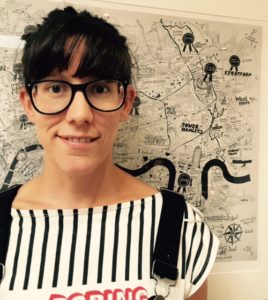When recruiting to a study one must always take recruitment very seriously. An underpowered trial can ruin an entire study. Not recruiting enough participants can suggest an intervention is not acceptable. It is only by recruiting the minimum number of people that one can be confident the study is relevant to the wider population. A study may be very interesting, but if it only includes a small number of people it may have little relevance to the wider population. And when working with people with dementia, recruitment can prove extremely challenging.
Working out how many people to recruit is perhaps the starting point. I am speaking as a researcher who does intervention trials. A pilot study is a useful method of working out the effect size for an intervention trial. To do this one tries out several outcome measures to work out which is most sensitive, and consequently how many people one would need to be confident the intervention effect on this measure would be the same for most of the population. Working out how many people one needs in a pilot study seems to be a bit vaguer. This seems to be slightly more pragmatic. You need enough people to have a reasonable sample in both the treatment and control group (if doing a randomised controlled group). It seems somewhat dependent on what is available. A pragmatic sample size might simply be dependent on what you can achievably recruit in a short space of time. Alternatively, a good rule of thumb is recruiting more than 10 people to each condition in a pilot randomised trial, or at least 30 people overall. Not sure where this data has come from but seems to be something ‘known’.
That may all sound reasonably straight forward-ish, but when working with dementia this might be a bit trickier. As a starting point dementia is a heterogenous disease. This can mean you can end up with very unmatched groups. If you narrow things down, it can narrow the pool. For example recruiting only one type of dementia may prove challenging- how do you confirm the precise diagnosis? How do you recruit enough people with a rarer dementia? How do you ensure they are all at the same stage of disease? How do you consent people if they lack capacity? If you exclude people with certain symptoms, you won’t ever know if your intervention will work with them.
I work with people with primary progressive aphasia, a rarer language led dementia. This is often difficult to diagnose and people “fall between the cracks” for several years. This means I am less likely to identify large numbers of people with PPA at any one centre. Even at a national centre, the people there may not all wish to participate in my study or may not all be able to consent to participate. But having multiple recruitment sites can be a real juggle, with increased costs and complexity. But why do people decline to participate in research?
I have found that there are lots of people who favour research on a ‘cure’. This is the main hope. Of course. But most research in the UK is not yet focused on cure. Additionally, people are dealing with a huge lifechanging diagnosis. Being invited to do research at a diagnostic appointment is a lot. Equally, the way a research study might be presented is tricky. Doing a battery of assessments or being prodded and poked might just feel tooooo much.
I am also mindful of how we present research. We don’t really want to pressure people into doing research. If the research is being suggested by a health professional, in a position of power, does that bias people? Might they worry they must? It is quite difficult to explain research without ‘promoting’ it. Though perhaps we should ‘promote’ it. I am not quite sure. Certainly, explaining it in plainer English, with a smile and lots of time is essential. I feel like we need more advertising campaigns in the media to explain the range of research- that has after all done wonders for research more broadly. Perhaps famous people describing brain donation, care interventions or qualitative studies would do the world of good…
Author
Dr Anna Volkmer is a Speech and Language Therapist and Senior Research Fellow in Language and Cognition, Department of Psychology and Language Sciences, University College London. Anna is researching Speech and language therapy interventions in language led dementia and was once voted scariest speech and language therapist (even her children agree).

 Print This Post
Print This Post